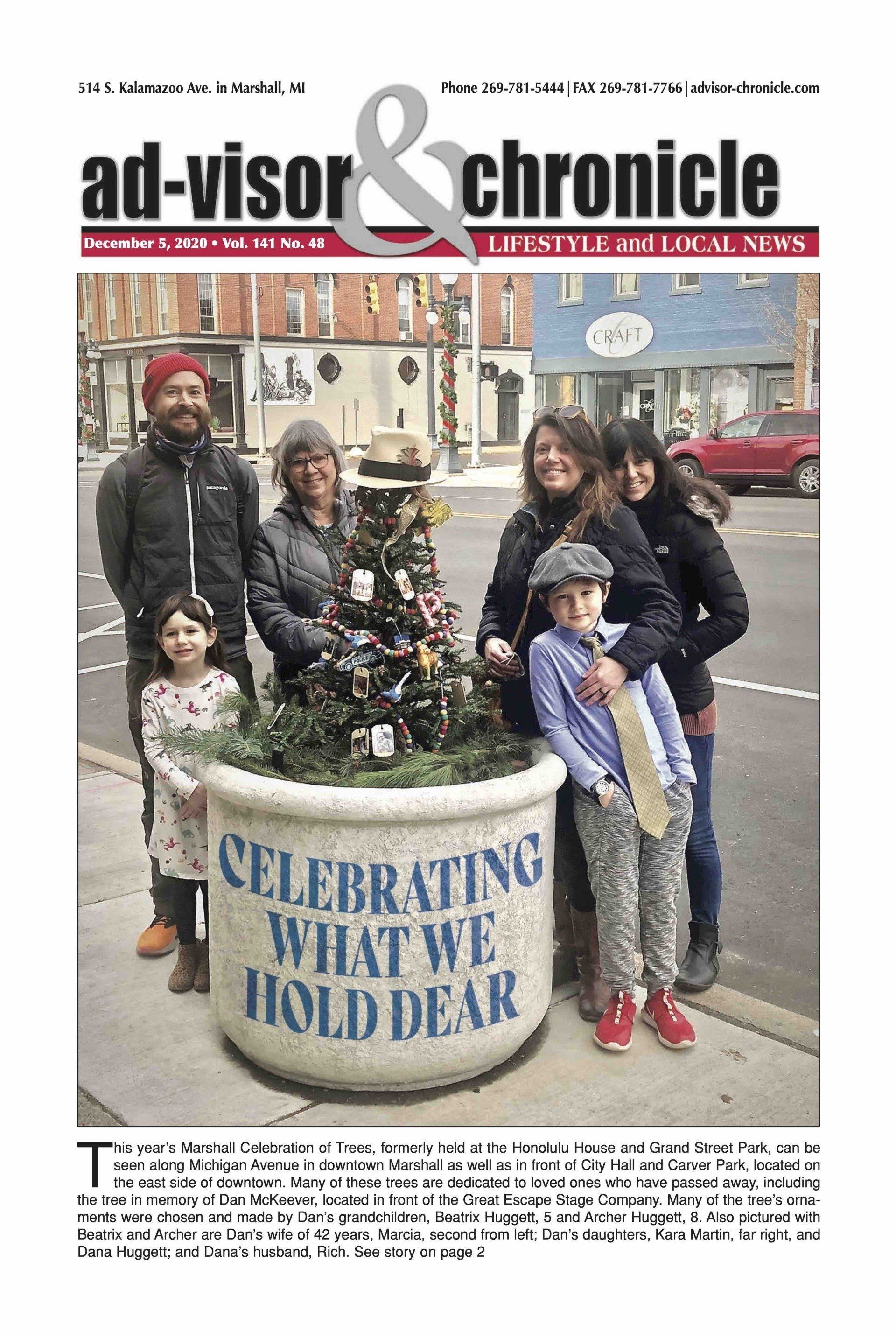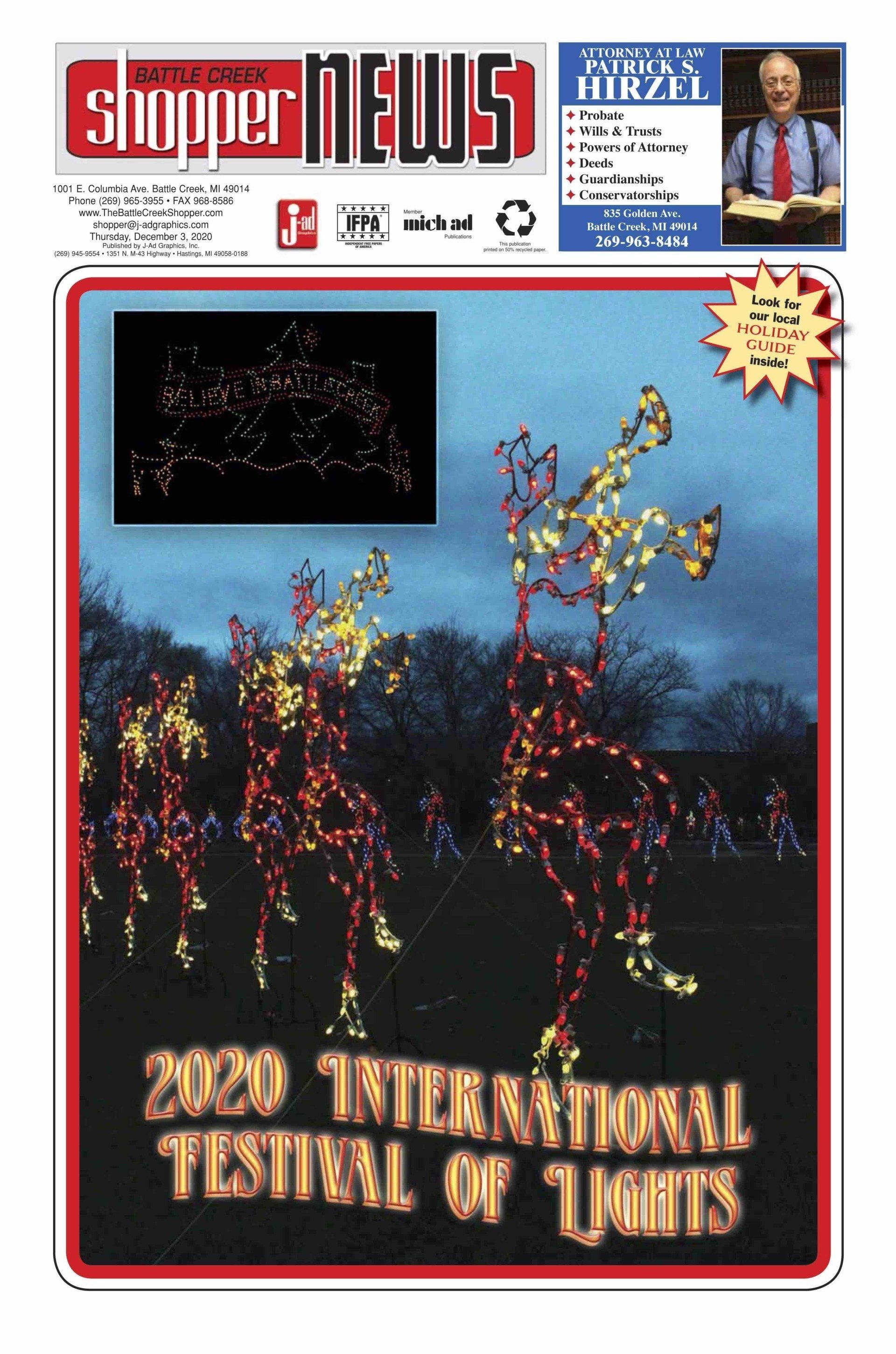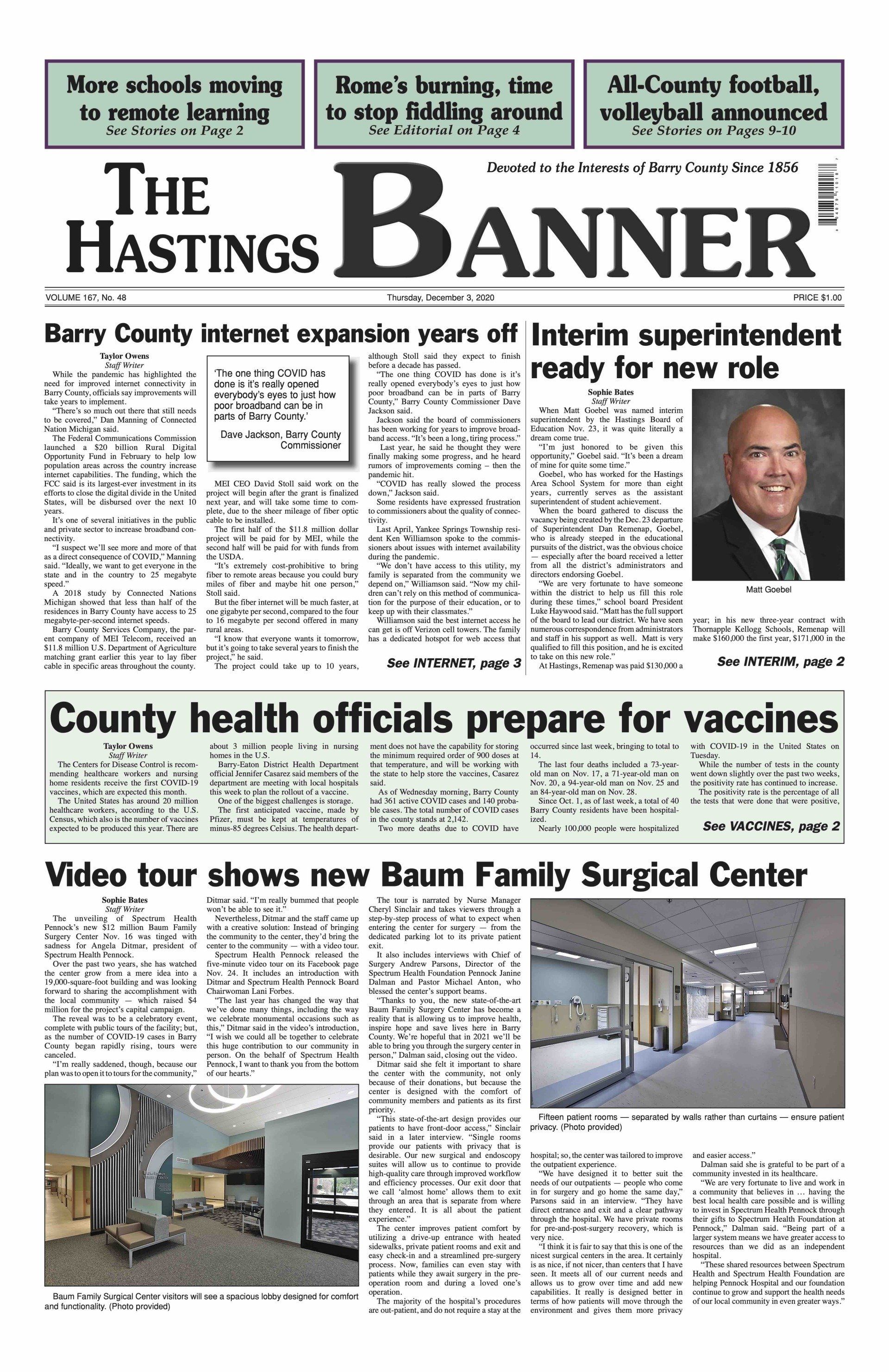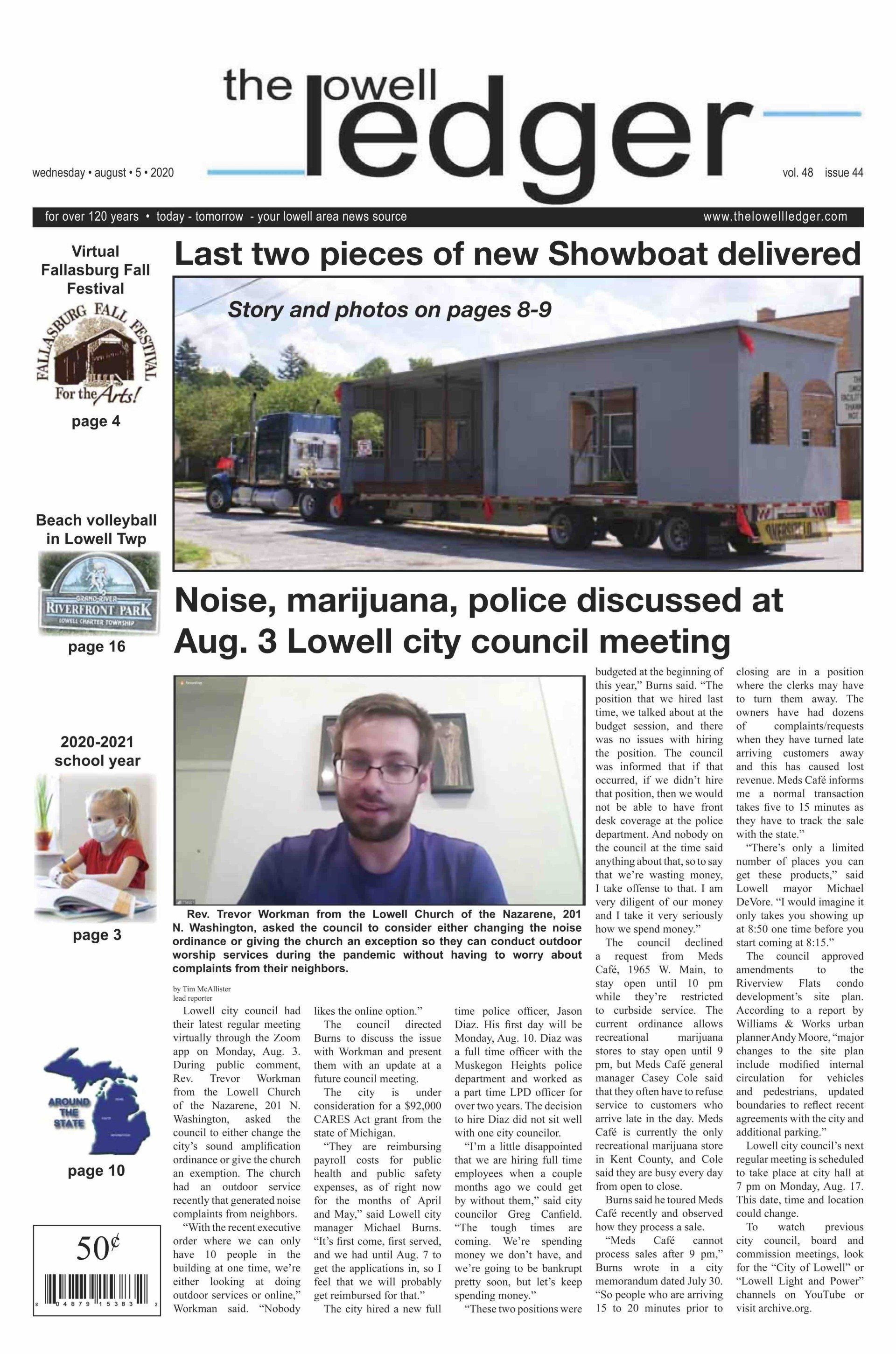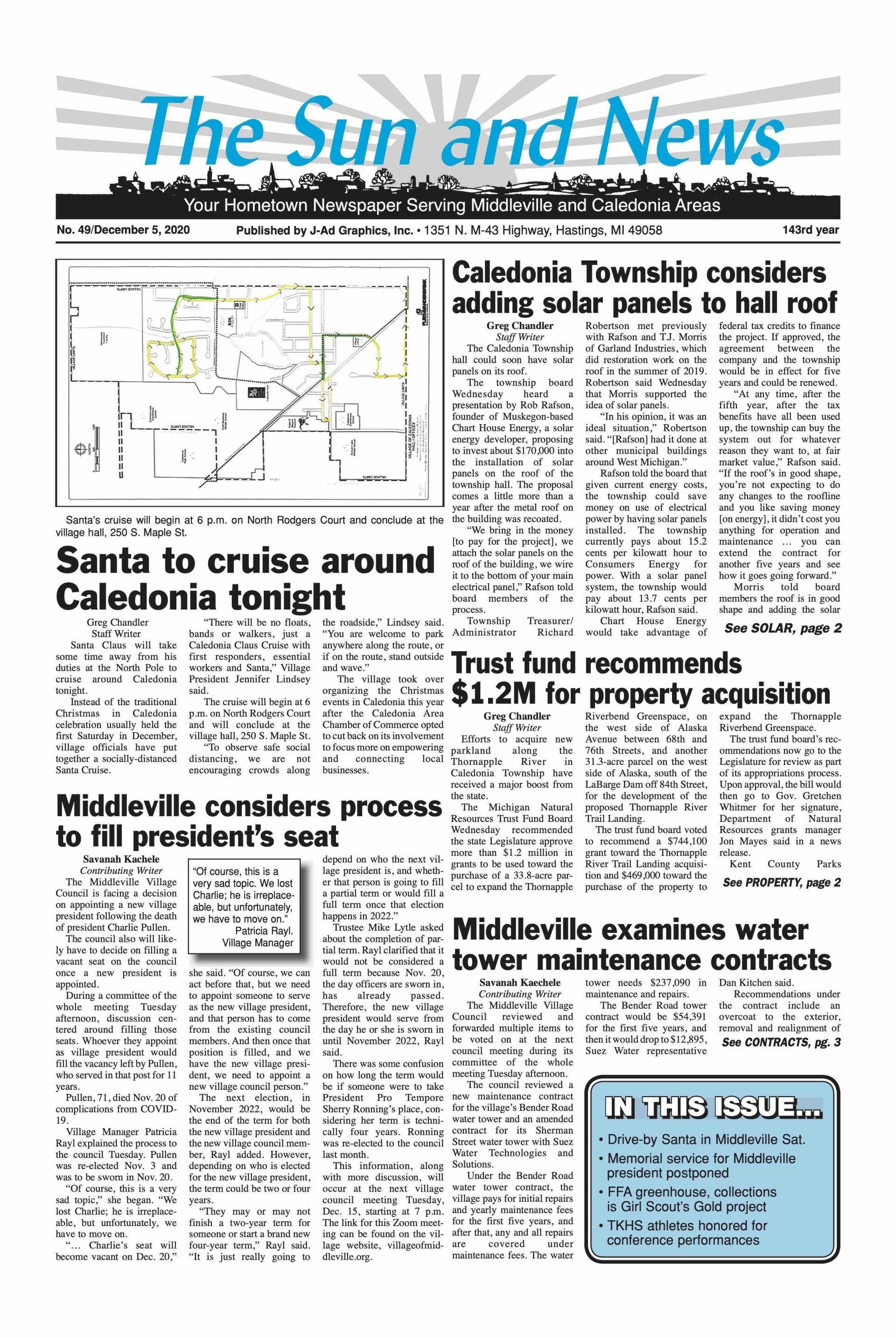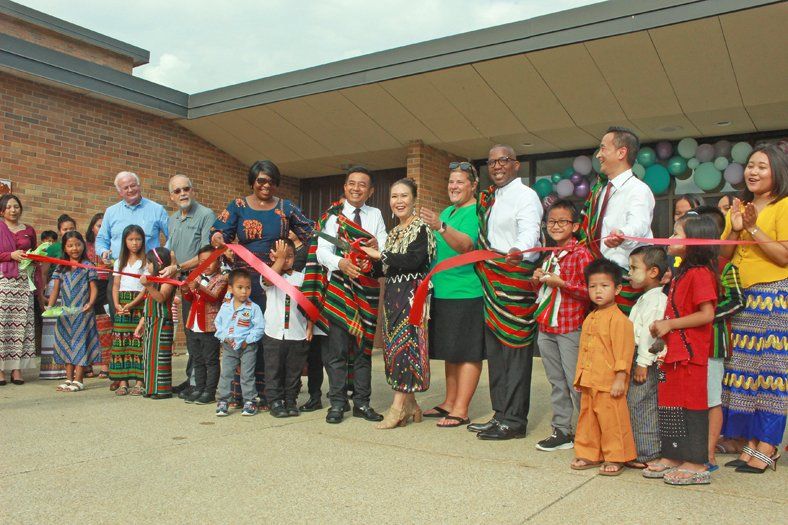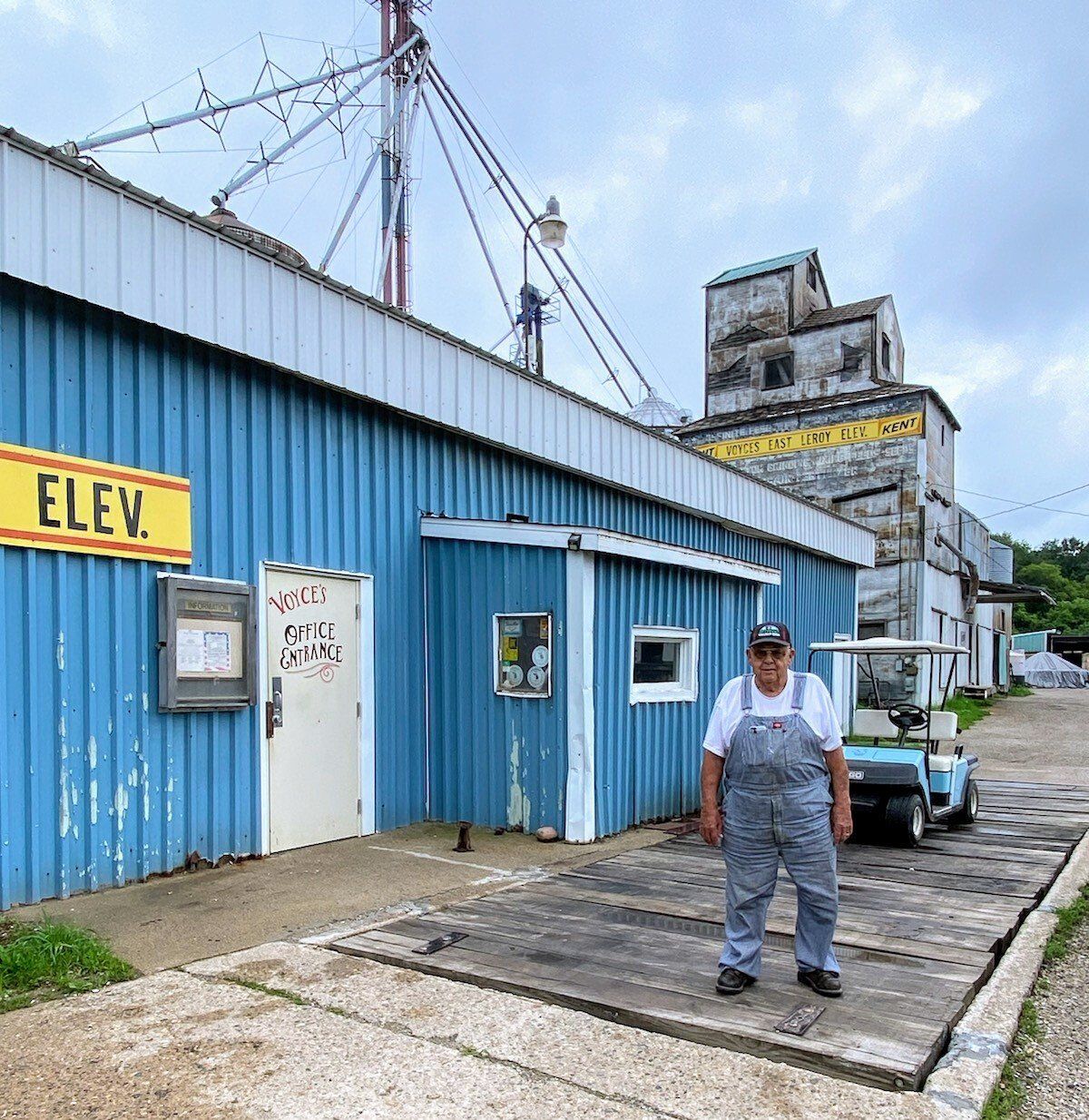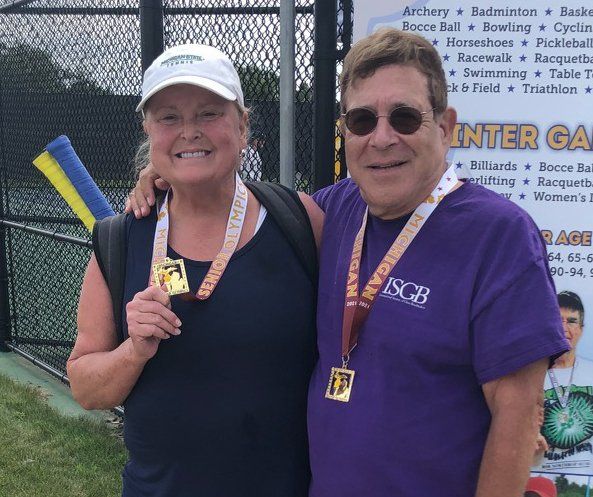Youth-led climate change symposium scheduled
Shopper News • December 18, 2020
Battle Creek Area Math & Science Center students lead event
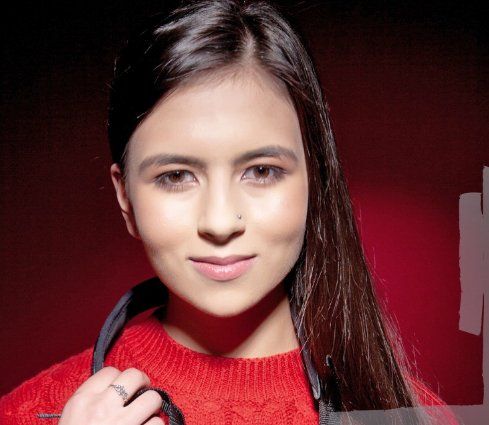
Shelly Sulser
Executive Editor
A youth-led climate change symposium inspired by a similar event last year in Hastings has been organized by students from the Battle Creek Area Math and Science Center (BCAMSC).
“Climate change is real and its effects are dangerous,” said event co-chair, Kasey Conklin, a Lakeview High School junior. “The symposium will include many speakers of high esteem with captivating, informative presentations.”
There are five different categories of presentations: climate science, climate technology, climate policy, climate justice, and climate action.
“We want to educate others, encourage others to participate, and give people the resources they need to effectively mitigate climate change,” said Conklin.
The event will be broadcast place live online Feb. 20 to high school students and science teachers everywhere who register by Feb. 6.
While efforts to book 17-year-old environmental activist Greta Thunberg were unsuccessful, Conklin said she was nevertheless inspired by the outspoke climate change whistle blower.
“She’s like me, she’s a teenager and she really cares about the topics at hand,” said Conklin, “like in her case, climate justice and climate science and it’s a really big inspiration to a lot of people because she knows what she wants and knows how to get it.”
Joining Conklin on the committee organizing the BCAMSC symposium are co-chair Kaylynn Budreau, who will appear at the symposium to lead a session on “Learning Climate Change at Your School” and what action can be taken.
Also on the committee, all with equal responsibilities, said Conklin, are Lauren Smith, Samantha Pajack, Jacob Witzke, Emma Elferdink, Treshai Hubbard, Connor Wolverton, Maddie Piper, Luke Longden, and Rylee Becker.
“BCAMSC students,” said chemistry teacher Tim Muhich, “are working very hard to put together something incredible for their fellow high school students across the state.”
Keynote speakers are 18-year-old Mya-Rose Craig, billed as a prominent British Bangladeshi birder, conservationist and environmentalist.
“She is committed to conservation such as stopping biodiversity loss and saving our planet through halting climate change,” according to her bio, “whilst respecting indigenous peoples, and highlighting Global Climate Justice as it intersects with Climate Change Action.”
The other keynote speaker is Dr. James Hansen, best known for his testimony on climate change to congressional committees in the 1980s that helped raise broad awareness of the global warming issue.
He was elected to the National Academy of Sciences in 1995 and was designated by Time Magazine in 2006 as one of the 100 most influential people on Earth.
The speakers and sessions presenters are all donating their time, said Conklin, who is in her third year at the BCAMSC and who wants to help people by becoming an osteopathic pediatrician.
“The sciences and math are something that really resonate within me,” she said, “and it’s really nice to go to a building with opportunities such as the symposium where we get to really involve ourselves with our studies and really work to create a change not only in our community but the entire area.”
Conklin said Thunberg, known globally for her speeches to the United Nations and to climate rallies in Stockholm, Helsinki, Brussels and London, is making a difference.
“All of the speeches that she gives, they’re powerful and you can tell the emotion behind it because she’s not afraid to show it,” said Conklin, who attended the Hastings High School youth-led symposium online in March. “And, not only her words but her actions, like riding in boats to places and going out of her way to lower her carbon emissions and her carbon footprint. Everything that she does is inspiring.”
The Hastings symposium gave the Battle Creek students ideas for how to organizing their own event.
“Some of us attended that and it set a good foundation for what we should build off of so that was really the inspiration for this,” said Conklin. “Climate change is one of the largest issues we think our generation is facing right now and we all believe that teens all over the world hold the power to enact meaningful change and they should be given and the means for what needs to be done.”
Other presenters include:
• Wenona Singel is an Associate Professor of Law at MSU College of Law.
From January 2019 until December 2020, Wenona was Deputy Legal Counsel and Advisor for Tribal Affairs for Governor Gretchen Whitmer. At the MSU School of Law, Wenona is Associate Director of the Indigenous Law & Policy Center.
At MSU, Wenona teaches and publishes in the areas of Property; Federal Indian Law; and Natural Resources Law.
She is a member of the American Law Institute and a Reporter for the Restatement of the Law of American Indians.
She also received an appointment by President Barack Obama to the Board of the Saint Lawrence Seaway Development Corporation, a position she served in for five years.
She received an A.B. from Harvard College and a J.D. from Harvard Law School. Wenona is a member of the Little Traverse Bay Bands of Odawa Indians, and she is married to Matthew Fletcher, with whom she has two sons named Owen and Emmett.
Her presentation will be about how tribal communities are often the first to experience the impacts of climate change.
Her presentation will describe what actions tribal governments are taking in response.
• Dr. J.P. Lawrence who is an evolutionary biologist focusing on amphibians to better understand how selection can act to create animals with conspicuous coloration.
This research largely involves working with poison dart frogs to understand their ecology, behavior, and molecular biology as well as examining how predators respond to these toxin animals.
Working with these frogs, he has had the opportunity to travel to Central and South America to work with them on site.
While much of his work focuses on evolutionary questions, working with amphibians means understanding the conservation implications of human interactions, he writes in his bio.
“As a result, he has worked with a variety of groups to promote the conservation of these animals into the future,” he bio reads. “Currently, he is a professor at Michigan State University in Lyman Briggs College that focuses on teaching cell and molecular biology to undergraduate students.”
• Professor Richard Hill has spent most of his career as a biology professor at Michigan State University, where he has worked hard to be a good teacher as well as a productive researcher, according to his bio.
During many summers he was a Guest Investigator at Woods Hole Oceanographic Institution.
He has carried out original research on coral reef ecosystems in the Caribbean Sea and both the Pacific and Indian Oceans.
He conducted his undergraduate studies at the University of Delaware and his graduate studies at the University of Michigan.
His presentation will be over coral reef ecosystems. Coral reef ecosystems are among the most production, diverse, and spectacular ecosystems on Earth.
“They are vulnerable to rising temperatures and other threats of climate change,” according to his bio. “Some experts fear that they will be extinct within a century.”
More details on the online event and how to register can be found at hsclimatesymposium.com

